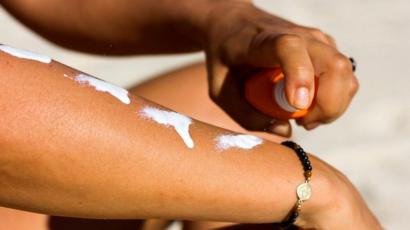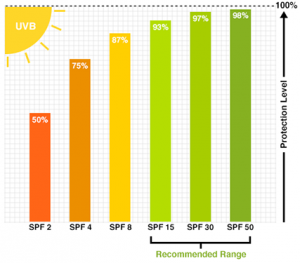All About Sunscreen

Why You Need It.
How it Works for You.
The big picture: Sunscreen is an important part of a complete sun protection strategy. But sunscreen alone isn’t enough to keep you safe in the sun. When used as directed, sunscreen is proven to.
Decrease your risk of skin cancers and skin precancers. Regular daily use of SPF 15 sunscreen can reduce your risk of developing squamous cell carcinoma (SCC) by about 40 percent, and lower your melanoma risk by 50 percent.
Help prevent premature skin aging caused by the sun, including wrinkles, sagging and age spots.
The short answer is everyone! Men, women and children over 6 months of age should use sunscreen every day. This includes people who tan easily and those who don’t — remember, your skin is damaged by sun exposure over your lifetime, whether or not you burn.
Babies under the age of 6 months are the only exceptions; their skin is highly sensitive. Stay out of the sun; shade structures and sun-protective clothing are the best ways to safeguard infants. With so many choices, how do you pick a sunscreen that’s right for you? The Skin Cancer Foundation believes that the best sunscreen is the one you are most likely to use, so long as it provides safe and effective protection, and is broad spectrum with an SPF 15 or higher. Learn about your options to make an informed choice that best suits your needs. The happier you are with your sunscreen, the more consistently you’ll use it.

Sunscreen ingredients
Sunscreen includes active ingredients that help prevent the sun’s UV radiation from reaching your skin. Here’s how the two types of sunscreen work for you:
Physical sunscreen ingredients (including the minerals titanium dioxide and zinc oxide) block and scatter the rays before they penetrate your skin.
Chemical sunscreen ingredients (like avobenzone and octisalate) absorb UV rays before they can damage your skin.
What does SPF mean?
SPF stands for Sun Protection Factor. The number tells you how long the sun’s UVB rays would take to redden your skin if you apply the sunscreen exactly as directed compared with the amount of time without sunscreen. So, if you use an SPF 30 product properly, it would take you 30 times longer to burn than if you used no sunscreen.
SPF 15: Ideal for every day, occasional exposure, like walking your dog, or driving to work. SPF 30 or higher: Necessary for extended outdoor activities, including distance running, hiking, swimming and outdoor sports. SPF 30 is a must if you work outdoors.
www.skincancer.org







